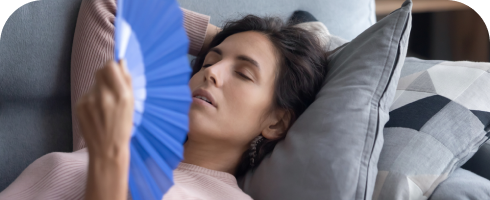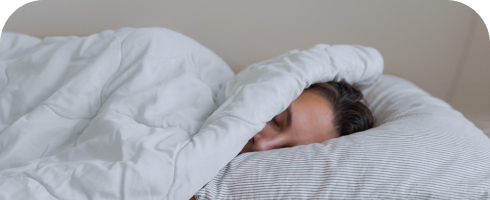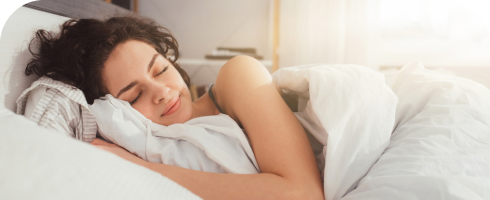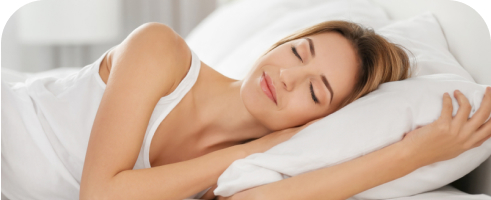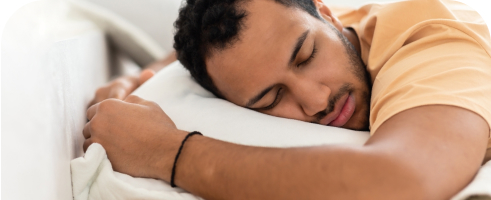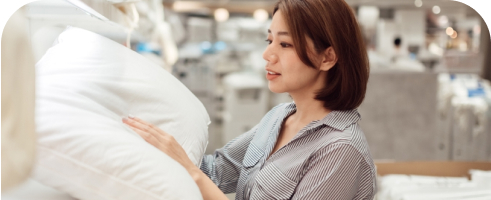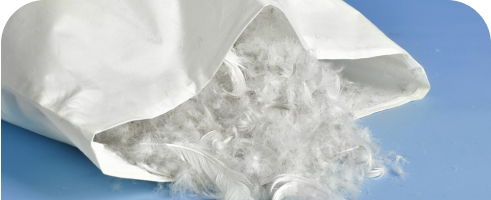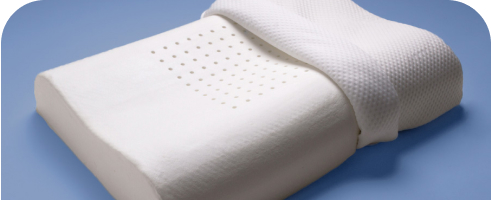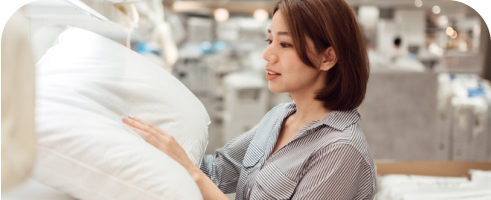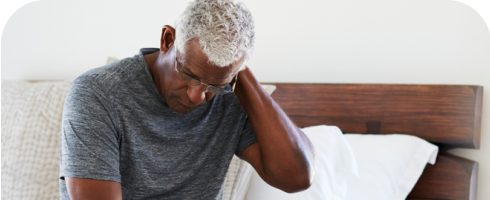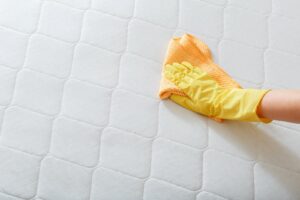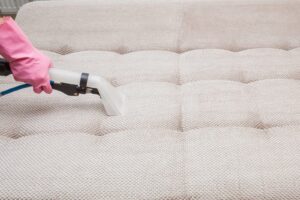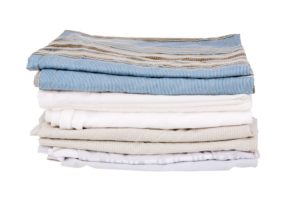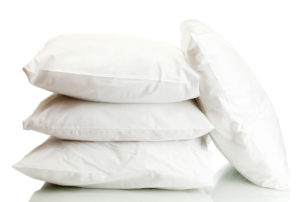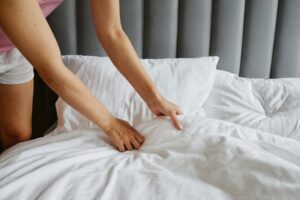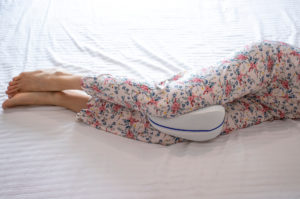Benefits of a Silk Pillowcase
- While the benefits of silk pillowcases are sometimes overstated, it is true that they have a cool, luxurious feel. This can make them a good investment for hot sleepers, as well as those who have sensitive skin or frizzy hair. The fabric’s softness and its ability to minimize moisture buildup may also be worth the higher price-point.
If you’re shopping for a new pillowcase to improve your bedroom environment, you may have heard about the benefits of silk pillowcases. While some of these claims are exaggerated, silk pillowcases do offer many benefits that make them a worthwhile investment for some.
Silk pillowcases have an exceptionally smooth feel that you won’t find in other popular pillowcase materials such as cotton, linen, or flannel. Silk can help improve the health of your hair by reducing tangles and frizziness. To a lesser extent, it also benefits your facial skin by preserving moisture and reducing the likelihood of creases.
To help you decide if silk pillowcases are a good match for you, we’ll examine the benefits and debunk some myths.
Find a Pillow That’s Right for You
Looking for a new pillow? Take the quiz below to find the perfect pillow for your needs.
Trouble sleeping?
Answer these 5 easy questions to discover your perfect pillow

Trouble sleeping?
Answer these 5 easy questions to discover your perfect pillow
What position do you sleep in?

Side
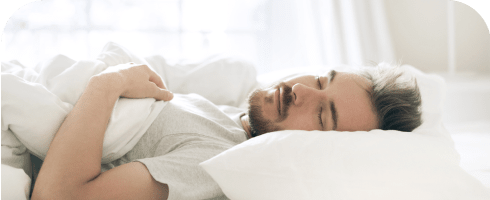
Back
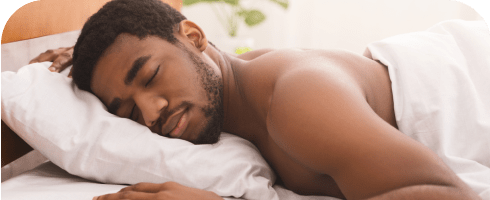
Stomach
What Are the Benefits of Silk Pillowcases?
In addition to being a desirable luxury bedding option, silk pillowcases have many reported benefits. Some of these are proven, while others are exaggerated or even groundless.
When people discuss whether silk pillowcases are good for you, they often focus on benefits having to do with your hair, skin, and comfort level.
Easier on Your Hair
Silk is gentler on the hair than other fabrics like cotton or linen. The smooth texture allows the fabric to glide against your hair cuticles, producing less friction than coarser fabrics that are more likely to snag hair. While silk does not outright prevent bedhead, the reduced friction can result in less tangling, frizziness, and breakage. Silk is most beneficial to sleepers with hair that is curly, natural, or prone to tangles.
Moisture Retention
Silk absorbs less moisture than other popular bedding materials like cotton. This allows the skin to retain more moisture, which in turn helps prevent dry or itchy skin. Silk is also less likely to absorb any lotions or serums you might use in your bedtime skincare regime.
These benefits extend to your hair as well. Hair that is chemically treated or susceptible to breakage is less likely to split or break if it’s well-moisturized.
Low moisture retention also helps prevent yellow stains that can develop when pillowcases absorb too much moisture and sweat over time.
Temperature Regulation
Silk feels cool to the touch and has natural temperature-regulating properties that help keep you cool in summer and warm in winter. This is probably why silk sheets are quite popular.
Silk is also excellent at wicking moisture from your body, which helps prevent the sweat from pooling up and cooling on your body at night. Note that while silk excels at wicking moisture, it does not actually absorb much of the moisture.
Fewer Wrinkles and Creases?
Some pillowcases can irritate your skin and leave creases, especially if you toss and turn a lot at night. Silk pillowcases cause fewer wrinkles because the smooth quality of the fabric produces less friction, which means it won’t tug at your skin as much as a fabric like cotton.
Silk pillowcases are not a miracle cure for wrinkles, and their benefits for skin have not been proven by rigorous clinical studies. However, you may notice fewer creases when you wake up in the morning, especially if you are a side or stomach sleeper with prolonged facial contact against your pillow.
Be Careful With Silk Pillowcase Claims
Silk pillowcases offer many known benefits. However, some claims about the benefits of silk pillowcases are exaggerated or even false. When deciding whether a silk pillowcase is a good fit for you, it’s important to know about dubious claims so that you can better understand how silk pillowcases may or may not help you.
Is Silk Hypoallergenic?
While silk may be beneficial for sensitive skin, it is not necessarily hypoallergenic. It collects allergens just like any other pillowcase. If you need a sleep solution for allergies, we recommend trying a pillow protector specifically designed to block allergens and dust mites.
Silk & Acne
Many silk pillowcase devotees claim that they have natural antimicrobial properties that help prevent acne. However, there is no scientific evidence to support this claim. Silk pillowcases are just as likely to collect bacteria as cotton pillowcases. We recommend washing your pillowcase regularly in order to avoid bacteria buildup.
Silk & Amino Acids
Some claims purport that amino acids in silk can help reduce wrinkles and prevent breakage in the hair. While silk does contain amino acids, you won’t reap the benefits of the amino acids simply by laying your head on a silk pillowcase. Amino acids do not transfer from silk to body on contact.
Are You a Good Match for a Silk Pillowcase?
Derived from the cocoons of silkworms, silk has a smooth texture that glides easily over your skin and hair. In addition to their cool, luxurious feel, silk pillowcases can provide some benefits to your hair and skin. However, they may be more expensive than other kinds of pillowcases, and not all of the claims regarding their benefits are accurate.
Silk Pillowcases
| Pros | Cons |
|---|---|
|
|
You Should Go for a Silk Pillowcase If:
- You enjoy pillowcases with a cool, luxurious feel
- You have curly, natural, or chemically treated hair that is prone to frizziness or breakage
- You have dry skin
- You want to retain moisture from skincare products
- You sweat a lot at night
You Should Go for Another Pillowcase If:
- You are on a tight budget. Silk pillowcases tend to cost more than pillowcases made of cotton or microfiber.
- You prefer low-maintenance bedding. Many silk pillowcases require more careful maintenance, and some cannot be washed or dried in a machine.

Still have questions? Ask our community!
Join our Sleep Care Community — a trusted hub of sleep health professionals, product specialists, and people just like you. Whether you need expert sleep advice for your insomnia or you’re searching for the perfect mattress, we’ve got you covered. Get personalized guidance from the experts who know sleep best.

